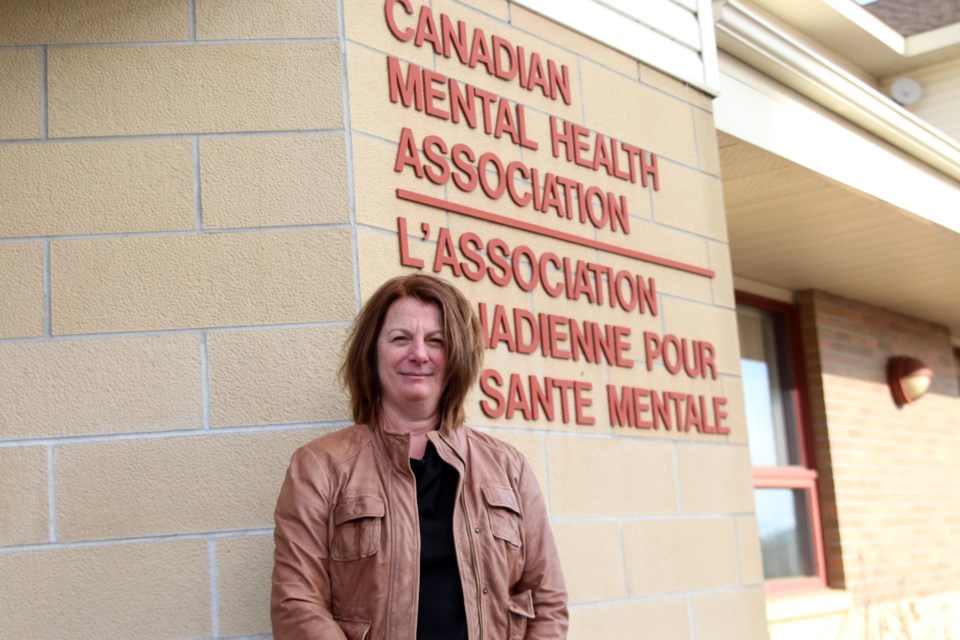THUNDER BAY - There still remains a great deal of uncertainty surrounding the COVID-19 pandemic and with more and more people facing job losses and health fears, mental health services are seeing an increasing demand for services.
“Our crisis line is certainly receiving far more calls,” said Jennifer Hyslop, CEO with the Canadian Mental Health Association Thunder Bay Chapter. “Many of the calls we are receiving are related to people struggling with the COVID-19 situation, people worried about being laid off, not being able to buy groceries, lots of anxiety, which is different from what we would typically be getting on the crisis line.”
Mental health services have been deemed essential workplaces and the Canadian Mental Health Association has adjusted services to protect the safety of staff and clients.
Services have moved way from face-to-face interactions to virtual or other means to address the needs of clients. The offices on Van Normal Street have also been closed to the public.
“All of our staff have contacted their clients and come up with an individual plan,” Hyslop said. “It depends on the clients and what their needs may be. Some clients have asked for daily contact from the staff, daily phone calls, others maybe once a week.”
“It’s just that outreach. It is a challenge to provide outreach virtually, ideally you would like to have face-to-face time with clients, but unfortunately during this time that is just not possible.”
The need for services is growing and will continue to grow. In times of uncertainty, issues like anxiety and stress often arise. Trevor Sullivan, managing director with Sullivan and Associates Clinical Psychology, said in times of crisis mental health problems do not disappear and new ones can come forward.
“We are certainly seeing increases in anxiety, not only for health but also for the financial state of things,” he said. “We want social distancing, but we want social distance not social isolation. We want to see people create those new habits where we are still engaging with people and not isolating.”
Sullivan said increased anxiety is often the result of not knowing or being able to predict what will happen.
“It’s one of those things that if you could circle a date on the calendar and say it will be over by this date, people would be able to cope a little better, but it’s that fear of the unknown that is creating anxiety,” he said.
With no way to predict when things might return to normal, there is concern that mental health agencies will see an even greater demand for services in the future.
“That is the concern that we have here at CMHA and community partners - how as a community we will support people with mental health and addictions and the challenges moving forward as this lengthens out,” Hyslop said.
For those who may be struggling with increased anxiety or stress due to the pandemic, Hyslop says it is important to not ignore those feelings, but acknowledge them and choose healthy ways to cope.
“We recommend that people sit with that feeling, honour it, acknowledge it, and do things like deep breathing to calm yourself down, meditation, find something you really enjoy, maybe some music that really inspires you,” Hyslop said. “Have a little dance party on your own, but not to fight that feeling, but sit with it and acknowledge it and use those tools that have helped you in the past.”
And with people now practicing social distancing to reduce the spread of the virus, it is important people do not become completely socially isolated, Hyslop said.
“Social distancing doesn’t mean social isolation,” she said. “We are encouraging people to reach out by phone, Facetime, make sure you’re eating well, sleeping well, really don’t focus on the news. We are recommending touching base once a day with a news source that’s reliable, otherwise that really increases people’s anxiety.”
The Canadian Mental Health Association crisis response line is available 24/7 and can be reached in Thunder Bay 807-346-8282 or toll free at 1-888-269-3100.
Sullivan added people are also encouraged to go online to mental health agencies websites for information and resources on mental health.
“My encouragement would be to take that smallest step,” he said. “The initial smallest step is there are a number of great resources online. From there you can follow that path of progress.”
“Thunder Bay, Northerners, we do more than just handle the cold. We are strong, resilient, we’ve been through economic hardship, and we keep on going. We will come through this as well.”
